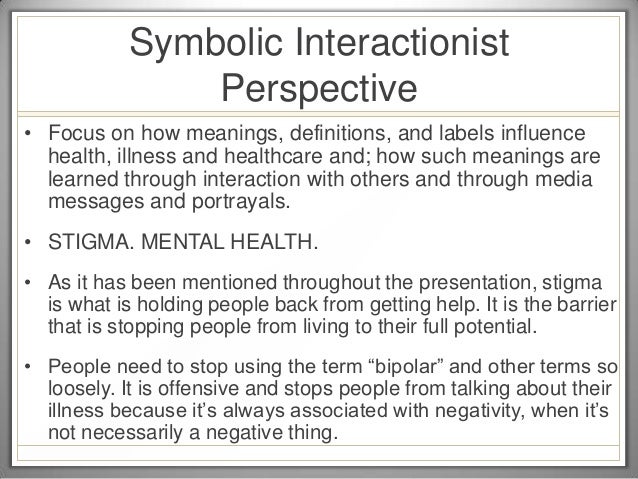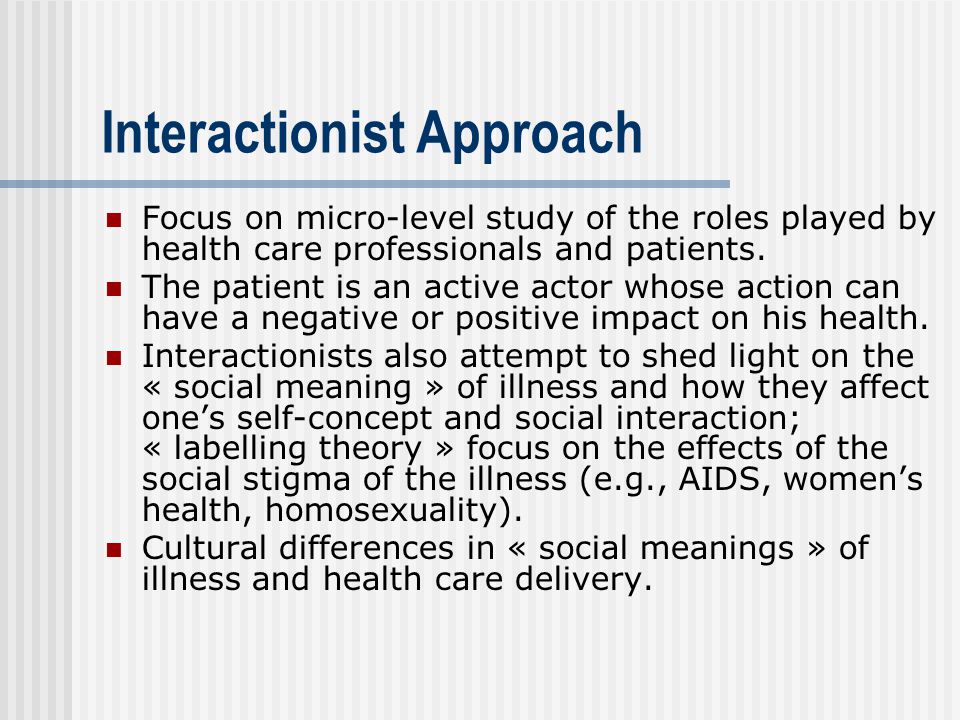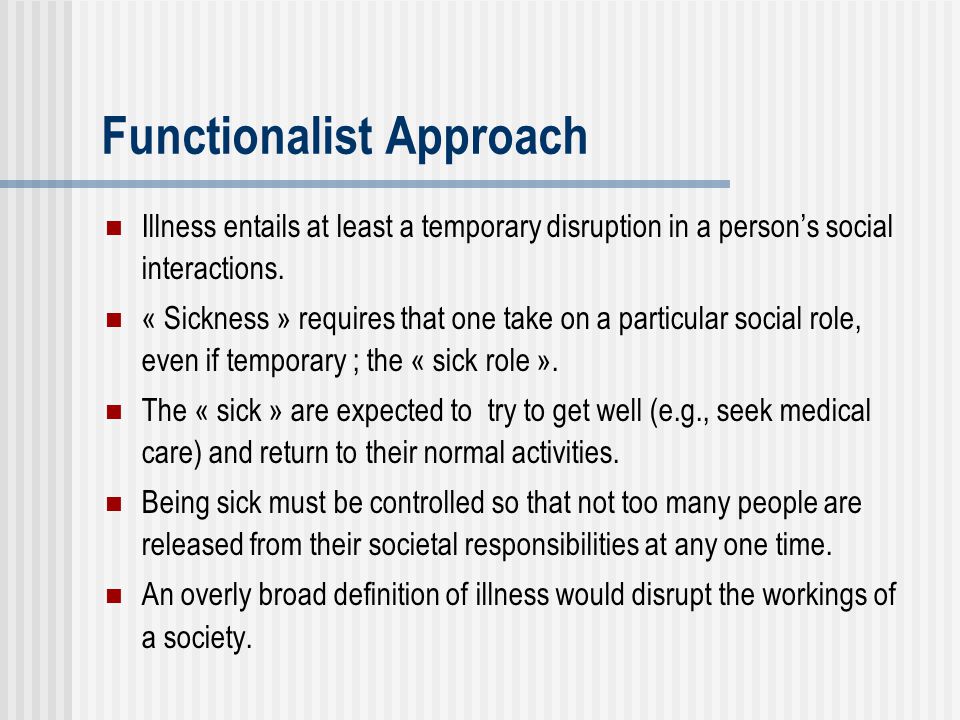Relevance: sociology; Emerging issues
Mental illness is a comparatively new concept although the sorts of behavior to which it is commonly applied are as old as mankind. The concepts of mental illness and the mentally ill person are usually applied to people who exhibit behavior considered abnormal by the others. Hearing voices, talking to one, having deep depression, being unable to carry on normal conversations are some of the displayed “symptoms” of mental illness.
![PDF] Social perspectives in mental health : developing social models to understand and work with mental distress | Semantic Scholar](https://d3i71xaburhd42.cloudfront.net/4fc14a933c0c1f7a3b7978ad681fee1840a9772f/146-Figure7.1-1.png)
The explanations of these behaviors are numerous and various.
- Hippocrates in Ancient Greece explained these behaviors in his Humoral theory. He suggested that in the human body there were four humors or fluids that controlled our temperament, our emotions and moods.
- He considered that our behavior was influenced by our moods and so in turn was controlled to a large extent by our bodily fluids.
- The fluids were known as blood, phlegm, yellow bile and black bile and in the normal healthy body these fluids were present in particular proportions.
- But it was possible for excesses to develop resulting in abnormal, unexpected behavior. Today, the description and explanation of abnormal or odd behavior can take a variety of forms.
- Most modern explanations are more likely to be scientific although religious and supernatural explanations are still accepted by persons with religious convictions.
Biological approaches rest on the assumptions that human behavior can be explained to a large extent by reference to the genetic composition and chemical processes of the human body. This has led to variety of investigations and research on heredity and physical defects.
Psychological theories of mental illness have been even more common. Mental illness has been recognized as a problem of the mind and broad comparisons have been assumed between diseased bodies and diseased minds. There is variety of perspectives within psychology, each with its own assumptions about the psychological nature of the human being.
The Freudian perspective on mental illness is founded on the assumption that the normal ,stable personality develops through a number of stages in which the innate pleasure drive or libido is directed on to different objects. The normal personality passes through an oral phase, an anal phase and a genital phase.
During this last phase an individual’s sexual drives that were previously directed to the parent of the opposite sex are transferred to an appropriate other person. For many reasons like inadequate familial relationships and early childhood experiences a person may regress to an earlier stage of development or become fixed in a particular stage. Such fixations can result in abnormal behavior.
Mental illness is seen as a pathological condition of the personality brought about by experiences in the early childhood that have hindered the normal development of the individual.
For sociologists mental illness has been an area of interest for several years. Some sociologists have sought the causes of mental illness in the structure of society.

- They have assumed that what an individual does is very much a question of what his social environment, his society structures him into doing.
- On this basis, mental illness has been seen as a condition or attribute of the person like a disease or disability produced by a person’s societal environment.
- Hollingshed and Redlich carried out a study ‘Social Class and Mental illness’ where they have demonstrated that in the urban community of New Haven in USA, the incidences and type of mental illness vary according to position in the class structure.
- This study shows that investigators started out with certain assumptions about the nature of mental illness and what causes it. This explanation is an example of structuralist perspective in sociology.
- The social class is assumed to be a feature of the structure of society. Members of the same social class are assumed to have similar roles in the economic order of society, similar attitudes and educational backgrounds and similar life styles.

- In the interactionist perspective mental illness is not seen as a condition lying within the individual.Instead it is seen as a social status conferred on the person by other members of the society.
- Instead of assuming that mental illness is something which persons can have within them like a disease or incapacity which anyone can observe and recognize ,it is seen as a state which is very much in the eyes of the beholder.
- Mental illness is seen as a label, a categorization conferred on to particular individuals by other individuals. It derives from a stress on the individual actions and perceptions of persons.

- Members of society are seen as active agents who construct their social action on the basis of the meanings and interpretations they give to their environment. They do not simply transmit or reflect a given structure but in fact create it by their interaction.
- The interactionist perspective also focuses on the individual’s conception of himself. It assumes that individuals have to interpret and give meaning to their own actions as well as those of others.
- It assumes that our self-conception influences whatever actions we may construct and that this self image is largely a result of the interpretations of other people’s reactions to what we say and do.
- These assumptions have led to investigations into how people labeled as mentally ill see themselves and how ,the conferring of the label mentally ill can subsequently produce abnormal behviour by an individual because he constructs action which he recognizes others expect of him.
Another way of seeing the world sociologically is represented by the ethnomethodology. It is another perspective as it asks questions and investigates the social world on the basis of different assumptions from those made in the structuralist and interactionist perspectives .
It assumes that the social world is being constantly created by members od society and that for them this continuous creation is largely unproblematic. It is seen as the result of members using their common sense.
The ethnomethodology suggests that every day mundane social activity is the product of complex methodic practices.
The members of the society do in fact continuously accomplish the social world through the use of common sophisticated methods.
Much of the effort to uncover these methods is directed to the analysis of transcriptions of natural conversations on the arguments that members constitute their social encounters in by and through such talk. Thus ethnomethodology is not likely to investigate mental illness as a specific topic for study given their concern with the more general and formal analysis of members methods.


Thank you